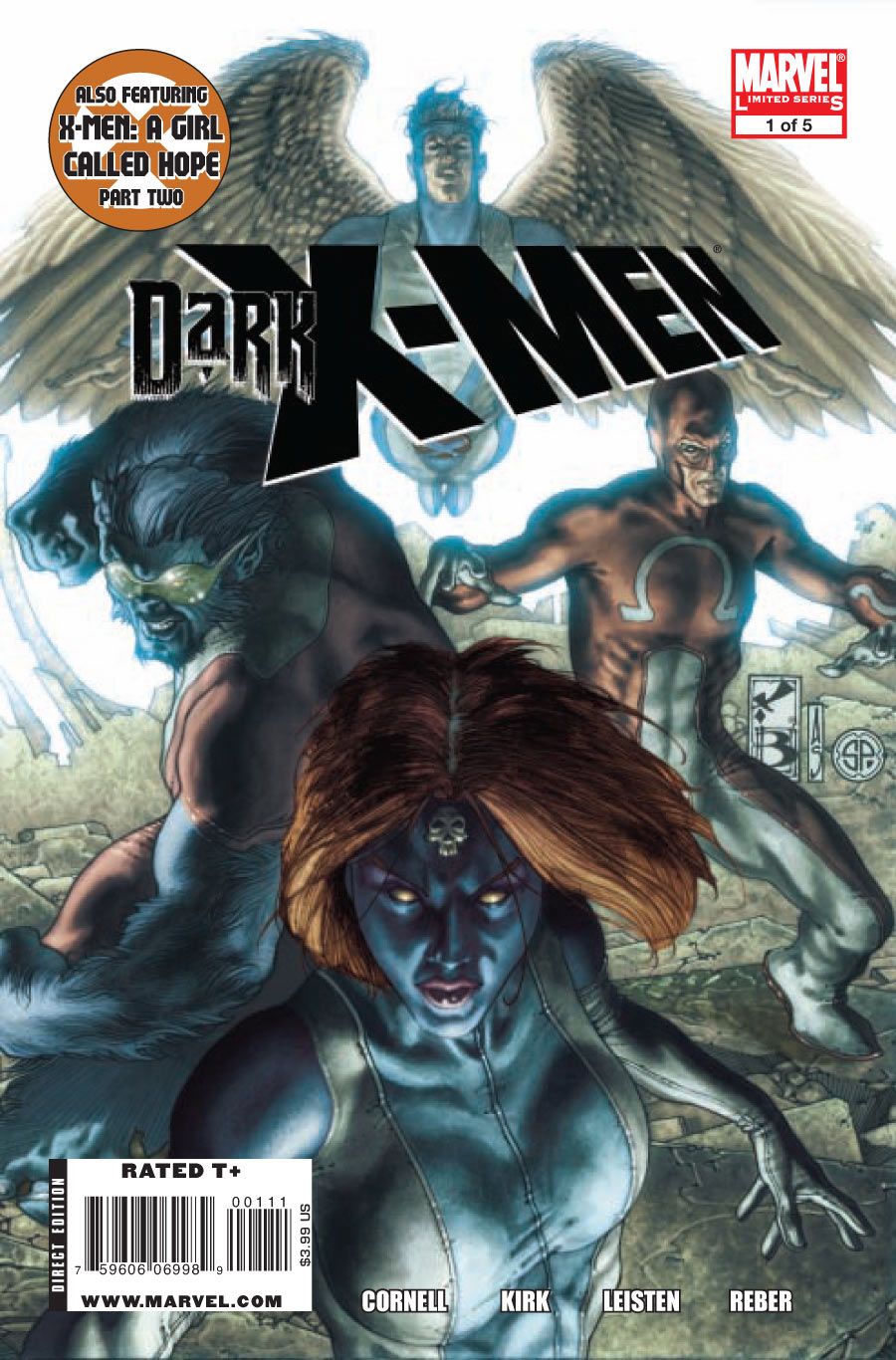I'll admit it, when I heard there was a "Dark X-Men" mini-series, I groaned. Another mini-series with the word "dark" in the title? Really? On the other hand, it was reuniting the "Captain Britain and MI13" creative team of Paul Cornell and Leonard Kirk, so for that alone it was worth taking a gander at. As it turns out? This reminds me a lot of the first year's worth of "Thunderbolts" by Kurt Busiek and Mark Bagley, and I loved those comics.
The premise is a solid enough one; after losing half of his own X-Men team during the events of "Utopia," Norman Osborn's remaining roster (Mystique, Mimic, Omega, and Dark Beast) continue to work for him even as they're all falling apart. Cornell wisely takes a different tactic with each of the characters; Mimic and Dark Beast are at opposite ends of the spectrum in terms of "hero" versus "villain," while Omega and Mystique occupy various shades of gray in-between the two. So while Mystique genuinely worries about Mimic's state of mind, at the same time she's also not against emotionally putting the screws towards the X-Men. Or even as Omega keeps talking about trying to make up for the bad things he's done in the past, his addiction to the energies from other mutants comes across more than a little worrisome.
It's actually fun watching these misfits of the mutant universe interact with one another. Cornell gives them a good rapport, one that is certainly aided by Kirk's slick pencils. You can see the worry on Mimic's face while in Moonstone's office, or when he starts catching a glimpse of his own future and begins to push Mystique away. I don't know if these characters could carry an ongoing series or not, but I can't help but think that based on this it would be worth a shot. Of course, Kirk's clean character designs are paramount to that idea; he's able to make them have just the right "good and wholesome" outward appearance that Osborn would demand for his X-Men team, and it's a perfect contrast to the darkness that resides in the hearts of characters like Dark Beast and Mystique.
I also have to give Cornell credit for bringing back a semi-obscure X-Men character here. Not only does the character fit the whole "dregs of the mutant universe" tone of the book, but there's even a connection between this character and a member of the team. (One that I'd actually forgotten until it's alluded to by the character.) It's a nice usage of past continuity, and it promises to be fun as the book moves forward. I've been saying lately that I'm burnt out on "Dark" books from Marvel, but for "Dark X-Men" I'm more than willing to make an exception.

